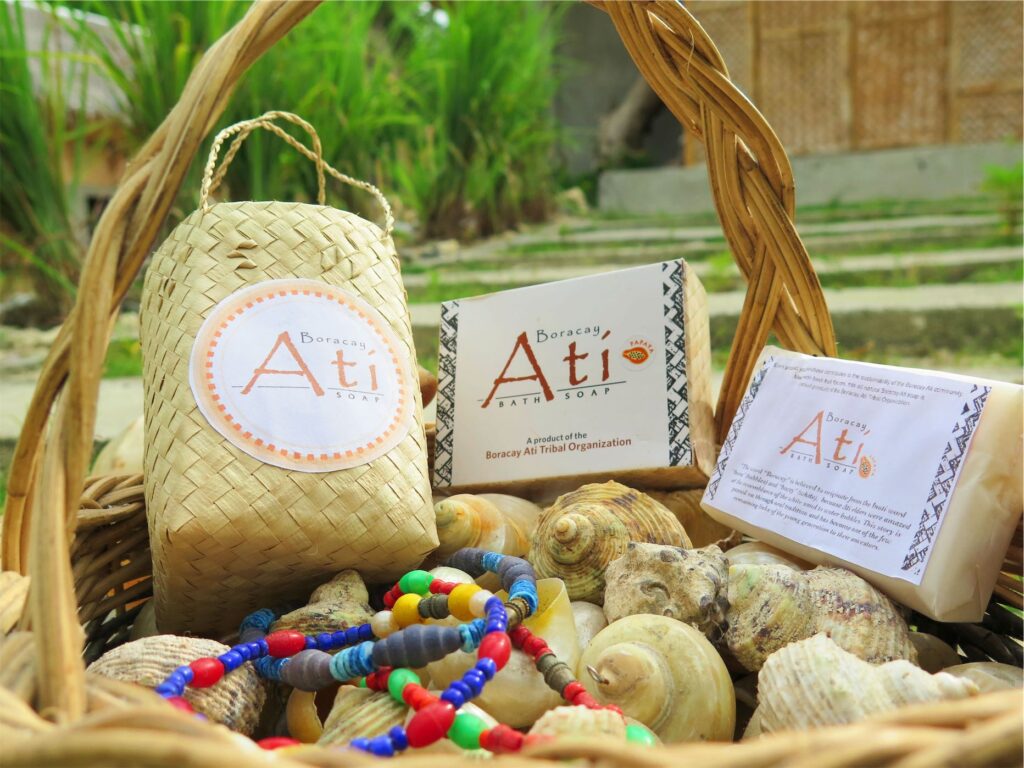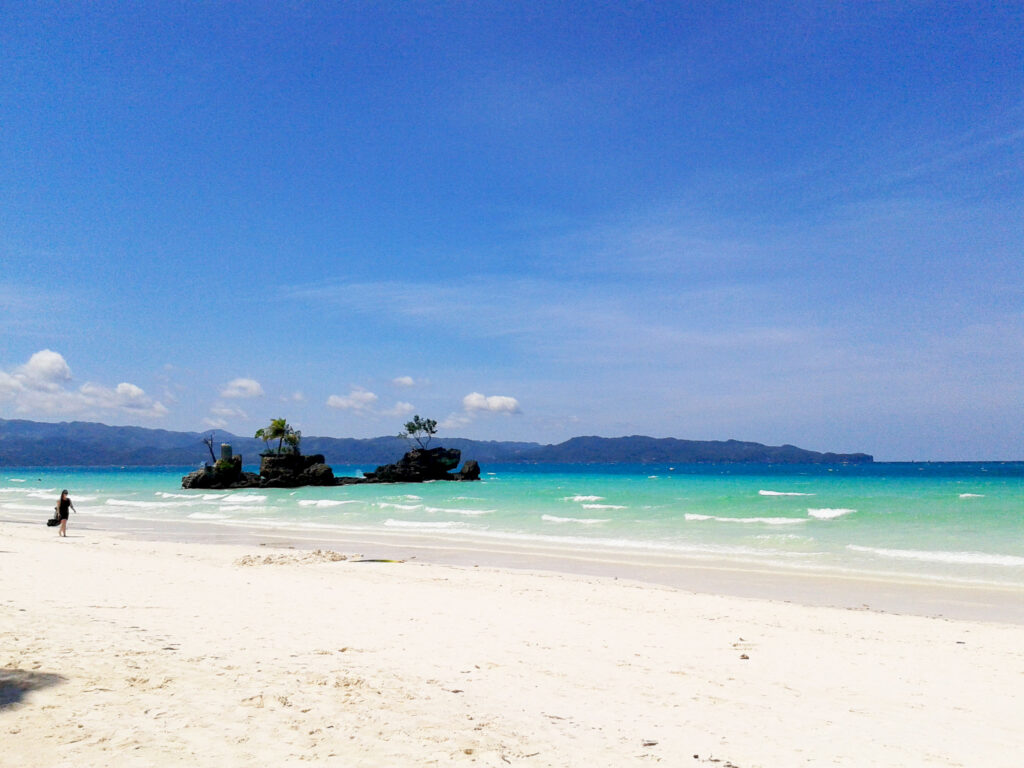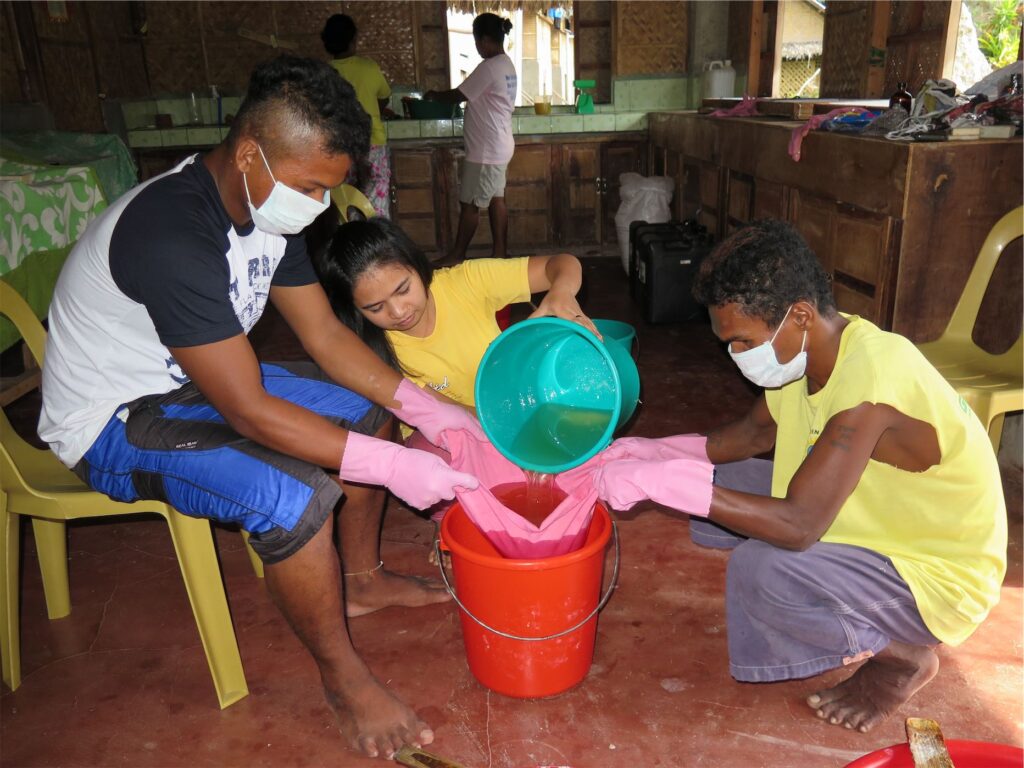Sunset and sunrise, cocktails, and parties come to mind when one thinks of Boracay Island. It is the place to see and be seen. The stars and elites line up its white beach, particularly in the summer season. Yet, it is not all glitz and glamour in the supposed island paradise. The Ati Tribe of Boracay has been cast in the shadow too long, often ignored as the beat of the party music grew louder. Now is the time for their voice to resonate over the noise.
The Atis were the earliest inhabitants of the Boracay Island, yet they were only granted a very small portion of their ancestral domain in January 21, 2011 (CADT No. R06-MAL-0610-157) by the Philippine Government through the National Commission of Indigenous Peoples. The large part of Boracay Island is still occupied by resorts, hotels, corporations, and affluent families. The Atis were given a total area of 2.1 hectares at Sitio Lugutan, Barangay Manoc-Manoc. Finding a sustainable industry to support the Atis was a difficult endeavor because of all the restrictions and difficulties that were afforded them.

In 1997, the Atis created the Boracay Ati Tribal Organization and the Boracay Ati Multi-Purpose Cooperative to address their practical needs in a fast-changing community. These organizations run various enterprises such as bath soap making, sewing, and handicraft making. Maria Forteza-Tamboon is a part of the bath soap making enterprise who enrolled in the IP LED certificate program along Evangeline Tamboon, and Marillian Justo. Maria took the place of Dexter Condez in the program after he was killed in February 22, 2013 for his defence of the Ati community and ancestral domain. She continued what he started and eventually found success for herself and for the Atis. She brought hope for the community after the deep cutting loss of Dexter.
Before becoming a production manager of the bath soap enterprise, Maria was a child care giver and a housekeeper. She was eventually given a chance to work for the community as a program management team leader. Yet, she felt inadequate and insecure because of her educational attainment and indigenous identity. Due to inexperience in running a business, she wasn’t able to manage the enterprise properly. She didn’t know how to do proper costing and marketing of their product. Maria was extremely shy and struggled in her new position.
Eventually, Maria surpassed her reservations as she learned how to converse and get along with other members of the community, visitors and travellers. The success of the enterprise helped her gain confidence in herself and her indigenous identity as an Ati. The growing popularity of their enterprise and products also helped Maria and her community overcome discrimination. Though Maria still gets surprised reactions from strangers because of her Ati identity, she now confidently exudes the skills, business savvy, and creativity of the Ati.
Maria is a proud graduate of the IP LED Program certificate course. She also imparts this on her children as she urges them to pursue the higher education she did not achieve earlier in life. Maria now manages four soap makers that receive proper wage. They give part of their earnings to the cooperative and school. In time, Maria addressed the labelling and packaging of her bath soaps, utilizing traditional buri weaving of the Ati elderly. This significant aesthetic improvement increased the marketability of their products resulting to heightened popularity particularly in booths and hotels around Boracay Island.

The bath soap labels claim that the word Boracay originated from the Ati word bora and bocay, which mean bubbles and white respectively. The Atis were believed to be amazed at the resemblance of the white sand to water bubbles. Such lores were passed down thru oral tradition and were further reflected in the bath soaps that the Atis make for the sustainability of their community. They utilized their lores and traditions to thrive in the contemporary times.
The Atis turned easily accessible natural products into a key for survival. They learned to produce bath soap from common fruits and vegetables such as papaya, calamansi, and carrots. This led to the development of a new enterprise for the Ancestral Domain Sustainable Development and Protection Plan. The IP LED Program aimed to further develop the enterprise by training IP LED fellows like Maria to improve production, marketing strategies, and general management of the enterprise. In due course, the Atis of the community were also trained for community-based accounting and bookkeeping, labelling, and enterprise management.

There is an increasing need to strengthen and empower indigenous communities like the Ati Tribe of Boracay Island. IP LED’s approach in developing mechanisms to enable the Ati Tribe helped improve the lives not just of individuals like Maria,
but also the lives of her family and community. Maria’s developed leadership skills resulted to her personal economic empowerment, consequently resulting to the empowerment of the bath soap makers of the enterprise and again of the community. This also led to a social and cultural development of the Ati Tribe as they learned to harness their skills and environment to overcome obstacles. Learning to turn commonly available natural products into attractive and marketable merchandise can be attributed to the community’s creativity. This led to a sustainable enterprise that responds ethically to the environment.
Maria believes that despite all the exhausting challenges and discrimination they faced as Atis, they should continue working together as a community and participate in the development of town activities. Though their history was fraught in shadow and violence, it is no deterrent for their success. Like Maria, the Ati community needs to gain knowledge and skill, as well as confidence, in the conduct of their daily life. Though small, the Ati’s ancestral domain is a beginning where they can build their way out of the shadow of tourist industry and into the light of their own creativity. It is an ongoing struggle, but like Maria, the empowerment of the indigenous people is key to their success and freedom.
ABOUT BATO
• Stands for Boracay Ati Tribal Organization
• A people’s organization of the Boracay Ati Community
• Located in Sitio Lugutan, Brgy. Manoc-manoc, Boracay Island, Malay, Aklan
• Its main thrust is to empower Ati leaders in upholding their rights to ancestral domain, cultural integrity, self-determination, and basic social services.
